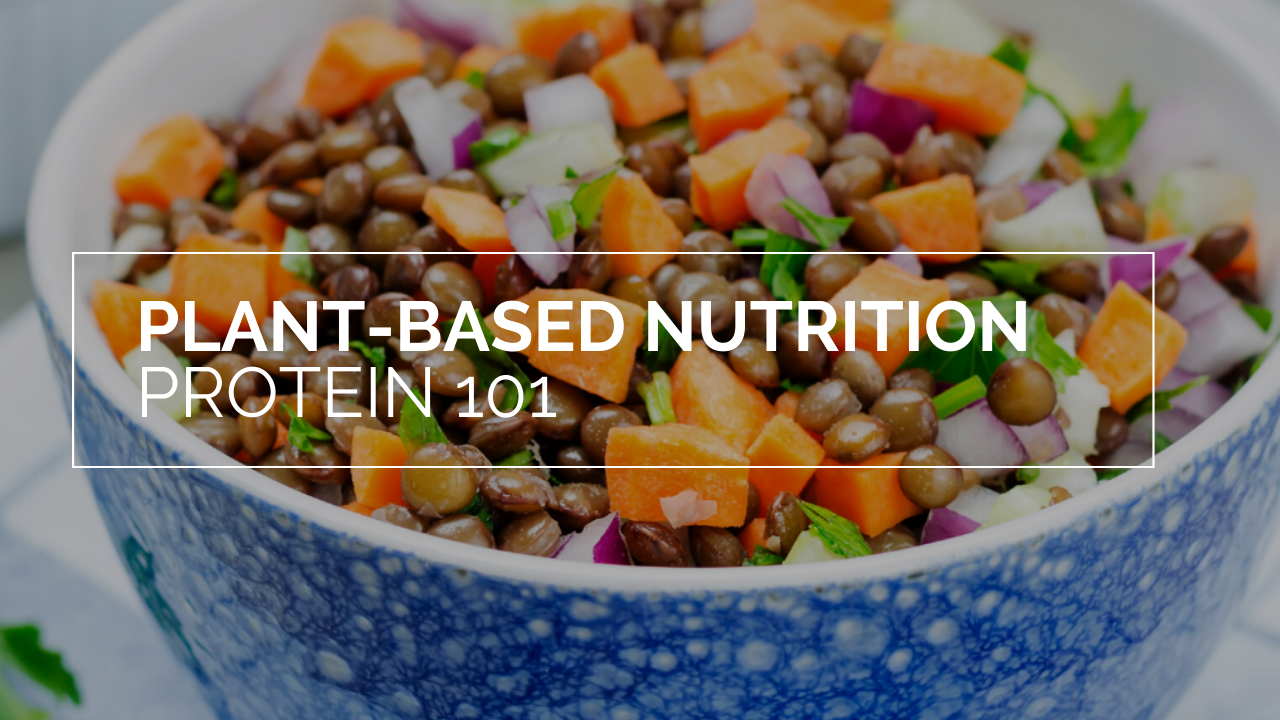About That Protein

“BUT WHERE DO YOU GET YOUR PROTEIN FROM?”
The first myth we need to squash is that plant foods are deficient in protein. We can get plenty of protein from legumes, which are the pod family of plants, such as beans, lentils, peas, and even peanuts. Even vegetables typically talked about as being starchy veggies, like broccoli, contain good amounts of protein.
Here's a quick list of Top 10 Vegan Protein Sources per 100g:
- seitan 75g
- hemp seeds 36.7g
- peanuts 26g
- pumpkin seeds 19g
- almonds 21g
- SUNFLOWER seeds 21g
- tempeh 19g
- lentils (cooked) 18g
- cashews 18g
- flax seeds 18g
There are twenty (20) amino acids that can make up a protein, but nine (9) of these are ones the body can’t make on its own and MUST get from food—that’s why these are called “essential amino acids.”
Animal protein has all nine amino acids, so people have charged vegans and vegetarians for eating sub-par or inferior protein because most plant proteins do not have all nine essential amino acids in the protein profile. In response to that, even over a decade ago, vegans would try and combine certain plant foods all in one meal so that they would be ingesting all nine essential amino acids in one meal. People used to religiously eat, say rice and beans in one meal, because together the whole grain rice and beans have all the amino acids—people referred to them as COMPLEMENTARY proteins.
HOWEVER, research has proven that if the protein we ingest in one meal is lacking in a certain essential amino acid, the meals we eat later that day—if they contain the missing link—will still count toward synthesizing with amino acids from the earlier meal! Yay for amazing human bodies!

Remember, too, that the herbivores—like cows and other livestock—get all their protein needs met on a plant diet. And then humans eat these herbivores in the form of meat and then boast that animal protein has all the essential amino acids, arguing that we should eat meat for our protein requirements! Yes, humans have a history of being omnivores, but they don’t need to be omnivores to survive and thrive. In fact, plant-based proteins do not come with the same “baggage” that animal protein does (think saturated fat, trans fats, hormones, endotoxins, etc.) that are disease promoting. By contrast, plant proteins usually come packaged with phytonutrients like antioxidants that help our bodies and brains run like a well-oiled machine and make us disease resistant.
As a result, many professional athletes and even weightlifters and bodybuilders have openly hailed the superior quality of a plant-protein-based diet once they transitioned. They are able to lean out while building muscle and they have found their performance and recovery to improved dramatically because of lower inflammation and other factors.
Also, did you know that some plant foods DO in fact have a complete “essential amino acid” profile? Quinoa, buckwheat, and soy are a few, and chia and hemp seeds are a close second. Chia and hemp seeds are almost there but not quite. They are a bit deficient in lysine to be considered “complete.” Either way, most whole grains act as a complement any of the other plant food families, so it is actually good for vegans to eat whole grains.
How much protein do we need? Well, that is a question to which there are some “rule of thumb” type answers. Some guidelines will tell you how to calculate it based on per pound or kilogram of ideal body weight. Obviously, though, the needs will vary with each individual’s unique body and their level of physical activity. Do some research to figure out a good sense of your needs, but most of all, monitor how you feel. Monitor your mood. Pay attention to how little or how much activity you get in. If you teach yourself to subsist on mostly whole plant foods and avoid addictions to foods, you’ll notice that you will simply be hungry when you need to eat—you’ll become in tune with your body.
If you build a whole-plant-food diet, you are likely to get everything you need to function optimally. Avoid the extremes and use some good old common sense. Learn to listen to your body and observe changes.
Here is an article on perfect protein sources and combinations.
About the Author:
Stevan Mirkovich, Certified in Plant-Based Nutrition
Plant-based living literally saved his life. As a recovering food addict, he's journeyed through overeating, junk-food veganism, and finally found the life-giving ways of a whole-foods plant-based style of living. Stevan has guided hundreds of people, introducing them to plant-based nutrition, cooking and shares education to help by break down the stigmas and myths that many people encounter as they transition to a better way of eating.
Stay connected!
Join our newsletter to be up to date on all things Planted!

